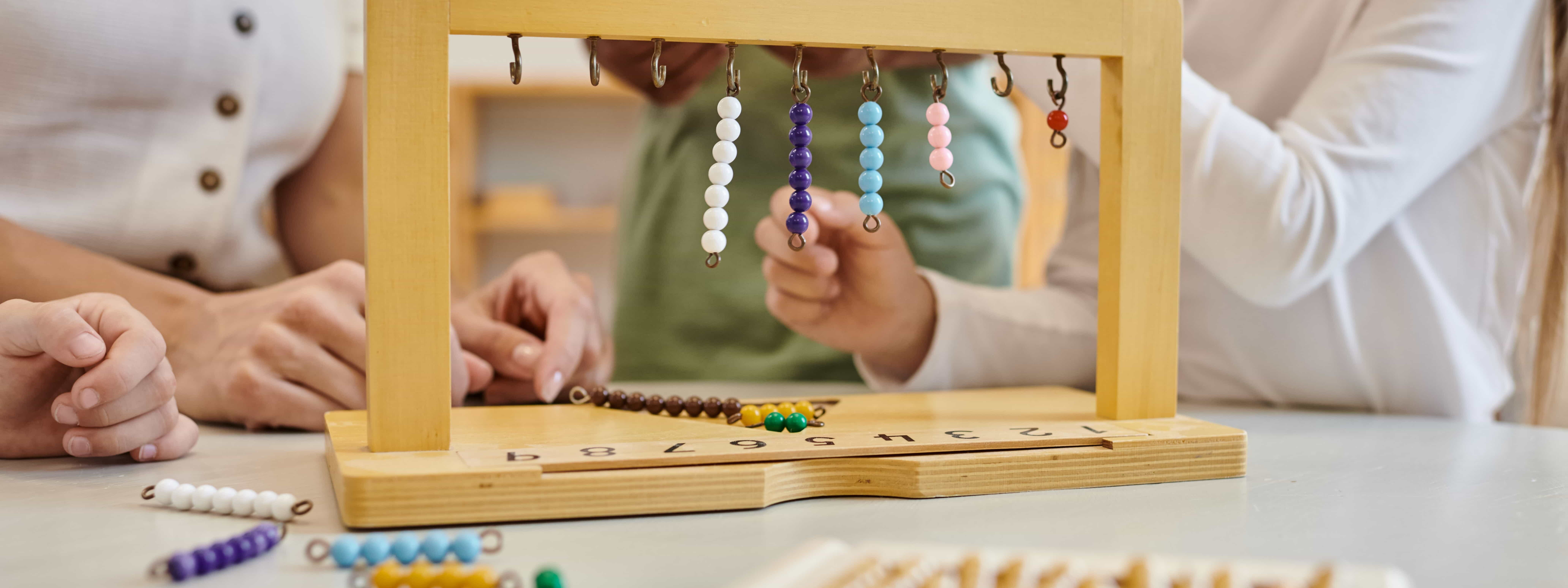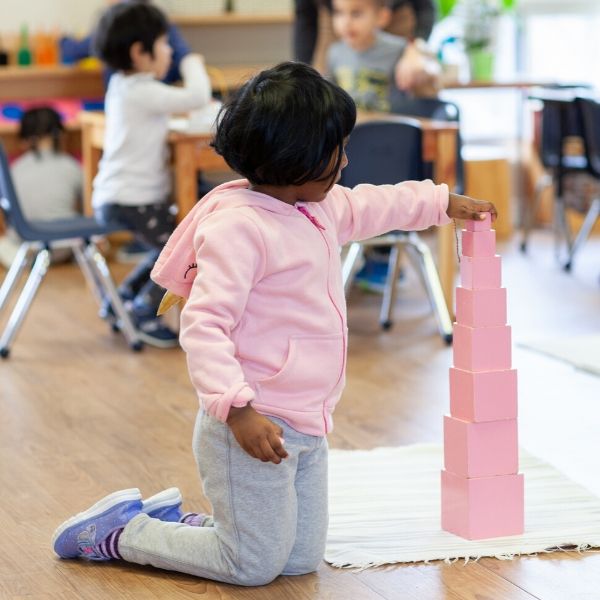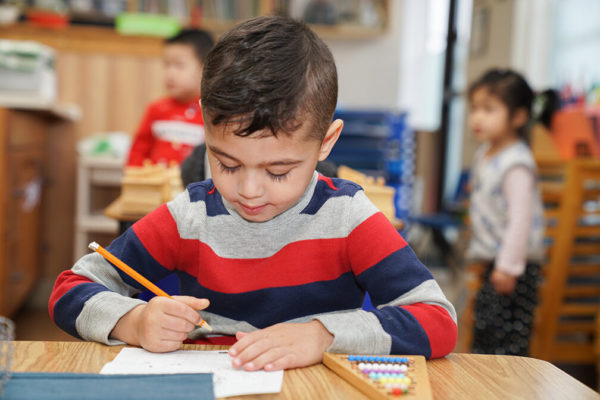Top 5 Differences Between Montessori and Traditional Education
Top 5 Differences Between Montessori and Traditional Education
Providing a strong base for lifelong learning is essential to a child’s future success. Studies show that children are more successful in school and beyond when given a strong foundation in the earliest years of their lives. The Montessori philosophy centers around helping children develop cognitive, social, and physical abilities to help build this foundation.
Villa Montessori Polaris takes a child-centered educational approach using the Montessori Method which is based on scientific observations. Montessori has stood the test of time with over 100 years of success worldwide. Despite this, many parents are not familiar with Montessori or the advantages a Montessori education has over a more traditional school setting.
Here are the five biggest differences between Montessori and traditional education. This list is not all encompassing as there are hundreds of differences between the two; however, we feel these are the most important ones for you to consider.
Active vs. Passive Learning
Traditional schools are led by a teacher with the children instructed to listen passively. Children are generally asked to memorize things and then take tests based on what they have memorized. Montessori lessons are hands-on and active. Understanding comes from a child’s ability to discover things for themselves.
Self-Esteem is developed internally
Montessori encourages children to develop their self-esteem based on an internal sense of pride in their own successes and accomplishments. In traditional settings, self-esteem is thought to come from external judgment and validation making it more fragile and vulnerable to outside influences.
Montessori schools focus on guiding children to realize a true joy of learning new things. Children explore and investigate Montessori materials until they master the lesson on their own. The self-correcting nature of the materials builds independence and confidence.
Flexible Curriculum
Traditional schools offer a predetermined, fixed curriculum. All children must learn the same thing at the same pace and are expected to meet minimum testing standards to validate their comprehension.
Montessori curriculum expands in response to the children’s needs and is founded on the belief of individualization. Lessons are done at the child’s pace with the understanding that every child reaches milestones in their own time. Montessori allows children to follow their unique interests which results in enjoyable learning sustained over a lifetime.
The Prepared Environment
Montessori schools place an enormous emphasis on a thoughtfully designed classroom. Classrooms are prepared in advance based on students’ individual needs. While Montessori children can teach themselves using specially prepared materials, traditional schools are based on teacher-centered lessons and activities.
The Teacher’s Role
Perhaps the most important difference between a Montessori and traditional education is the relationship between the teacher and the student. Montessori teachers’ role is to provide personalized guidance and individual attention to each student on an as-needed basis. They assist each child along his or her own learning path giving them the time they need to master concepts. Montessori teachers avoid interrupting children whenever possible. This avoidance of interruptions gives children the freedom to learn at their personal pace, using methods that work best for them.
In traditional schools, students have minimal personal one-on-one time with their teachers. The teacher must deliver the same lesson, at the same pace, in the same order, for all their students.
Children are inherently curious. At Villa Montessori Polaris, Dr. Montessori’s teaching philosophy allows us to encourage our students to explore the world, to understand and respect all life forms, and to develop not just into smarter children but kinder, more generous of spirit individuals. As a Montessori school, our goal centers around four traits: order, concentration, coordination, and independence.
Maria Montessori says it best,
“If children can inculcate these traits, they can apply them to anything they are doing and be successful.”
To learn more about our authentic Montessori programs, please contact our school at 614-721-4410. We look forward to hearing from you and answering your questions on how best we can serve your family!
You May Also Like

Teaching the Montessori Way: The Three-Period Lesson

Understanding the Montessori Method: Learning Through Senses




